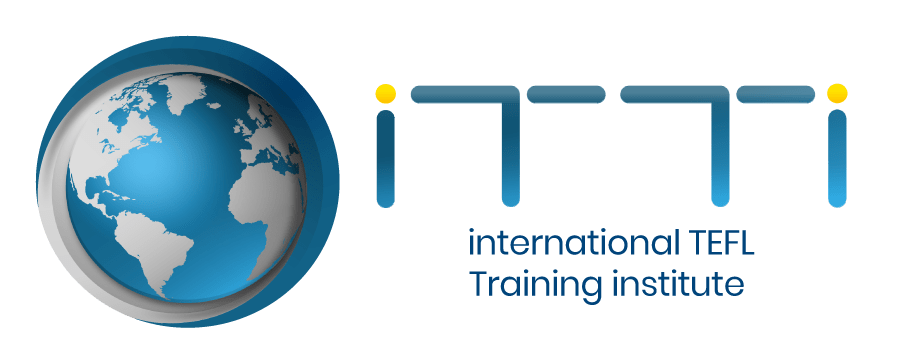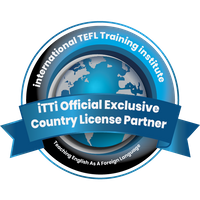“Success can be achieved, through hard work, frugality, integrity, responsiveness to change, and boldness to dream.”
WHY TAKE A TESOL/TEFL COURSE IN the Philippines
The country is a Southeast Asian archipelago of over 7,000 islands dotting the Pacific Ocean. Due to its unique geographical characteristics, the Philippines features stretches of pure white sand beaches surrounded by crystal clear waters. Several islands and beaches in the Philippines, including Boracay, Palawan, and Siargao, have been frequently ranked as the finest in the world by major travel journals.
But the Philippines is more than simply a beautiful tropical location for island hopping and beach excursions. The Philippines has world-famous natural treasures: an underground river and rice terraces, excellent diving reefs rich in biodiversity, colorful public transit, distinctive food, vibrant festivals that display its colorful culture, and friendly residents recognized as some of the happiest in the world.
Nearly a quarter of the Philippines’ 110 million inhabitants live in Manila, the capital, on Luzon, the largest island.
There are numerous ethnic groups in the Philippines, with the Tagalog, Cebuanos, and Ilocanos being the largest. Additionally, other languages are spoken in the country, while Tagalog is the official language. English is widely spoken and used as a medium of instruction by most educational institutions and for business communications.
Mindanao, the southernmost island, is home to a sizable Muslim community. Most Filipinos are Roman Catholic, but Mindanao also has a substantial Muslim population.
The Philippines’ economy has grown steadily during the past decade. The country’s GDP expanded by an average of 6.4% per year between 2010 and 2019.
OUR iTTi PHILIPPINES TEFL INSTITUTE
You can earn your TEFL certification at a training center that provides a number of different TEFL courses, including our well-known 120-hour on-site TEFL training course that features daily teaching practice as well as a feedback session that begins in Week 2 of the four-week TEFL program.
After successfully completing the 120-hour onsite TEFL course in the Philippines, graduates may take up employment all around the world, including schools in South Korea, Japan, Saudi Arabia, and elsewhere. As the course provides for a teaching practicum, they qualify for a work visa.
Our TEFL teachers have more than a decade of experience as senior leaders in the development of educational products and services, with a primary focus on educating Japanese and Korean students in the English language.
We currently provide you with access to two training centers that are well located inside Metro Manila for your convenience. In the near future, other training facilities will emerge in strategic cities across the Philippines.
work in the Philippines as a tefl TEACHER
There are numerous reasons why people choose to work as TEFL professionals in the Philippines. Here are a few examples:
1. The Philippines has a low cost of living.
2. The climate is tropical and pleasant all year.
3. The Philippines is a safe place to work.
4. The Philippines has a sizable and growing labor force.
5. There are numerous TEFL employment options in the Philippines.
Weather in the Philippines
The climate in the Philippines is tropical and pleasant all year. This means that working in the Philippines will always be enjoyable.
Safety in the Philippines
The Philippines is a safe place to work. The country has a long history of stability and has significant economic and political relations with several other countries.
Filipino Workforce
The Philippines has a sizable and expanding labor force. This means that there are numerous work prospects in the Philippines.
TEFL Jobs in the Philippines
Working as a TEFL teacher in the Philippines might be an excellent way to learn about the country and its people. Several employment opportunities are available, and you can frequently find decent jobs with good salaries and perks. When looking for a job in the Philippines, there are a few things to bear in mind:
1. Most schools will require a bachelor’s degree as well as a 120-hour TEFL certification.
2. Prepare to bargain over your compensation. Salaries in the Philippines are often lower than in other nations, thus, being able to negotiate suitable compensation is critical.
3. Be aware of the visa requirements. Before you may begin working in the Philippines, you must first obtain a work visa.
Prerequisites for Teaching in the Philippines
Foreign teachers need to have a work permit. To apply for that in your home country, you must have a BA/BS and an iTTi TEFL Certificate with Teaching Practicum. Your prospective school must support you with the visa application paperwork just like it is in other countries.
If you are a non-native speaker, your level of English must be perfect. What is perfect? Level C1 or C2—not only in speaking but also in writing. If you are unsure, take our free proficiency test and learn how you can improve your performance if required. (https://www.internationaltefltraininginstitute.com/proficiency-test-for-international-opportunities/).
Teaching Opportunities
There are different employment opportunities for teachers in the Philippines:
Public Schools: Teachers get compensated according to their level of education and years of service.
International Schools: Most of them are in Manila; others are in larger cities across the country. International schools feature an international curriculum (most of them British). The language of instruction is English.
English Language Centers
Contract Length Contracts differ from one month to 12 months depending on the type of school: private, public, international school, or university. They are renewable with the proper performance
Salary & Benefits
Teachers in the Philippines can expect to earn a comfortable living wage. The monthly salary varies based on their level of education.
BA/BS: 19,800 PHP = $345
Master’s degree: 29,100 PHP = $525
PhD: 48,800 PHP = $875
Teachers get a uniform allowance, a mid- and end-year bonus, a productivity enhancement bonus, a performance-based bonus, 70 days’ vacation time in summer, and a Christmas vacation. Teachers also benefit from the country’s free healthcare system.
Cost of Living
Compared to many other countries, living in the Philippines is inexpensive. One of the primary reasons why foreigners prefer to work in the Philippines is the low monthly cost of living.
|
Expense
|
Cost US$
|
Expense
|
Cost US$
|
Expense
|
Cost US$
|
|---|---|---|---|---|---|
|
Rent
|
150-50
|
Electricity
|
50
|
Water
|
20
|
|
Mobile
|
20
|
Gasoline
|
20
|
Internet
|
40
|
|
Transportation
|
10
|
Gym
|
35
|
Eating out
|
75-150
|
|
Groceries
|
100
|
Housekeeper
|
60
|
Healthcare System in the Philippines
The Philippines provides free healthcare to all its residents. Over the last 25 years, the medical standard has greatly improved. Depending on your location, getting to a hospital on time with well-trained staff should be relatively easy. Most of the doctors studied at prestigious institutes and speak English fluently.
The high-quality healthcare at a low cost makes the Philippines incredibly appealing to those looking for an excellent medical support system.
Pharmacies
Pharmacies in the Philippines have highly trained pharmacists and are widely available. Signs for pharmacies are in English and easily recognizable.
http://www.mercurydrug.com
https://tgp.com.ph/
Important Emergency Numbers
Emergency Service: 911
Electricity emergency: 123
Ambulance: 118
Fire Department: 113
Police: 110
Culture in the Philippines
The culture of the Philippines comprises a blend of traditional Filipino and Spanish Catholic traditions, with influences from America and other parts of Asia. The Filipinos are family oriented and often religious with an appreciation for art, fashion, music, and food.
Languages Spoken
The Philippines is made up of 7,641 islands, which has given rise to a vast number of languages. The Philippines currently has 183 live languages, the vast majority of which are indigenous or regional. Filipino and English are the Philippines’ two official languages. Filipino is a native language based on Tagalog; English has official status due to the Philippines being a colony of the United States between 1898 and 1946.
Religion
Roman Catholic 80.6%, Protestant 8.2% (includes Philippine Council of Evangelical Churches 2.7%, National Council of Churches in the Philippines 1.2%, other Protestant 4.3%), other Christian 3.4%, Muslim 5.6%, tribal religion 0.2%, other 1.9%, none 0.1% (2010 est.)
Food & Drinks
What is the traditional food of the Philippines? Adobo. The most popular Filipino food and referred to as the unofficial national dish of the Philippines, Adobo is commonly chicken (though pork is a 2nd favorite option) simmered in vinegar, garlic, black peppercorns, soy sauce, and bay leaves.
What is the national drink of the Philippines? Lambanóg is a traditional Filipino distilled coconut palm liquor. It is derived from tubâ made from coconut sap that has been aged for at least 48 hours. It originates from Luzon and the Visayas Islands (where it is known as dalisay de coco).
TEFL Courses in the Philippines fill up quickly!
120-HOUR ON-SITE TESOL CERTIFICATION
100% ON-SITE TRAINING
Total tuition: $1,500 USD
Deposit: $500 USD must be paid online upon registration.
Balance: $1,000 USD must be paid 30 days before the start of the course.120-HOUR COMBINED TESOL CERTIFICATION
75% ON-LINE/25% ON-SITE TRAINING
Total tuition: $1,200 USD Deposit: $500 USD must be paid upon registration. Balance: $700 USD must be paid 30 days before the start of the course.How to Apply for a TESOL Course
Step 1
To begin the admission process for iTTi Philippines in Manila, you must first choose your start date, complete the online application form, and pay a deposit of USD $500.
Step 2
An iTTi Enrollment Counselor will then contact you with instructions on how to complete the required English proficiency assessment test if you are not a native speaker. You must obtain a B2/C1 level. A certificate will be provided by iTTi School of English
Step 3
Once you are notified of your acceptance into iTTi in Manila, your remaining tuition balance is due 30 days before your course start date.



